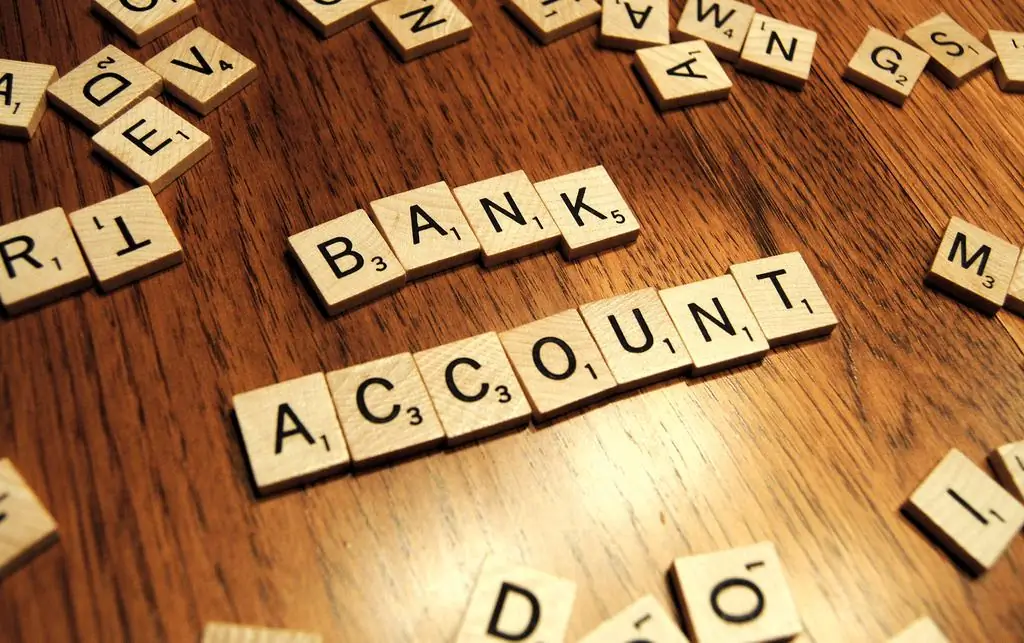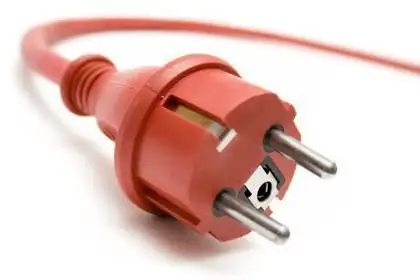2026 Author: Howard Calhoun | calhoun@techconfronts.com. Last modified: 2025-01-24 13:10:34
Efficiency of management is determined by the achievement of the goal, at all stages of movement towards the result, the manager must exercise control and supervision over the process, resources, environment. Control is one of the most important functional purposes of a leader.

The concept of control in management
Management is necessary in order to effectively organize activities, rationally spend resources and achieve goals. Management traditionally has five basic functions: planning, organizing, motivating, controlling and coordinating. Each of them has its own specificity and significance. So, control, current or strategic, is an important activity of a manager to compare the results of work with the plan at all stages of the production process, check the results for compliance with standards and norms, and eliminate emerging deviations.
The importance of control is explained by the need to remove uncertainty about the state of affairs in the company and the progress of the production process. Also, control is a prerequisite for successful activity. Heallows you to assess the situation and prevent the occurrence of crises. Control and oversight are necessary, but they can take many forms and perform a variety of functions. Depending on the style of leadership in an organization, control may be concentrated in the hands of a single manager, usually a senior manager, or delegated to several employees.

Control functions
Control is an unpleasant moment of work for both the leader and the performer, but it is necessary. In management, it is customary to talk about several basic control functions:
- Assessment of the environment, external and internal. In the course of control, the manager collects information and removes uncertainty in understanding the current process. Carrying out control allows you to detect negative or threatening factors in the external and internal environment and find opportunities to eliminate them or take them into account in the performance of activities.
- Responding to deviations. The manager controls in order to be aware of all the details of the production process and to have time to respond to changes and deviations. Control allows you to notice mistakes and threats in time and quickly rebuild the production process.
- Allocation of resources. Tactical and technical control allow the most rational use of available money, equipment, and find the right place for the competencies of employees. At the same time, control allows you to identify reserves and use them productively.
- Maintaining feedback. The interactive function of control is that in the course of its implementationinteraction is established between all elements of the system, between the manager and the executor.
- Evaluation of staff performance. In order to competently motivate employees and effectively pay for their work, it is necessary to build a clear evaluation system, in this the manager helps control at all stages of production.

Types of control
The complexity of the oversight process results in multiple control qualifications.
According to the frequency of the procedures, they are distinguished:
- Preliminary control. Even before the start of work, actions should be taken to track and evaluate key resources: material, human, production. Its purpose is to prevent the possibility of negative consequences of the actions of the performers. It allows you to make adjustments to the plan even before it starts to be implemented and before mistakes are made.
- Current control. It is carried out during the execution of work, its purpose is to identify at the stage of occurrence and prevent errors and deviations. It aims to monitor compliance with norms and standards. Current control requires a constant flow of information and prompt correction of errors.
- Final control. It is carried out at the stage of summing up and evaluating the achievement of results. The main purpose of this type of control is to prevent similar errors in the future. The data obtained during this stage becomes the basis for creating new plans.
Based on the frequency of control actions, strategic, tactical andoperational control. By functional affiliation, experts call financial, production, marketing and personnel types of control. You can also distinguish external and internal types of control based on the direction of action.

Strategic and tactical control
The most important tool for the implementation of enterprise plans are strategic and tactical control. The task of these types of management activities is to monitor the correctness of plans and ongoing actions. Strategic control is a systematic check of compliance with global goals, strategic programs and actions. The objectives of this type of activity are: determining the correctness of the chosen long-term goals and the correctness of the way to achieve them, identifying potential opportunities for the company. Tactical control is associated with checking the achievement of short-term, immediate goals. Its tool is technical control, which is aimed at identifying the strict compliance of the production process with regulations, standards and regulations.

Control at the stages of preparation
The whole management process is permeated with control stages. There is a tradition of stage classification, in this case, there are: preliminary, current and final control. Each of them performs its functions and has distinctive features. Preliminary control precedes the start of work, it is an integral part of planning. Its purpose is to create conditions for the effective launch of production. On thisAt the stage, the readiness and competence of the personnel, the availability of the necessary resources, and the documentation of activities are assessed.
The current control, unlike the preliminary one, coincides with the production stages in time. Its main function is to improve the workflow. The manager constantly monitors the compliance of all production operations and actions of performers with approved plans and standards. Sometimes this stage is also called "intermediate control", which emphasizes its main feature - the identification of shortcomings and deviations on the way to the goal. It is applied to the assessment of the solution of both current and strategic problems. Of particular importance is the final or final control. It is very different from other stages in terms of its tasks and flow.

Final control: specifics
The final stage of the production process involves the solution of several important tasks. This is the identification of the degree of compliance with the set goals and results, the assessment of the work of the personnel, the compilation of a list of miscalculations and errors in order to proceed to a new stage of planning based on them. The final control should be carried out according to the established criteria, so that the performers understand how their work is checked and how this will affect their remuneration. This type of supervision is associated with an assessment of the expenditure of resources, with determining the effectiveness of strategies and tactics, and assessing the correctness of decisions made earlier. The results of this stage are extremely important for the future of the organization, since its results canavoid mistakes when creating plans for the future.

Control procedure
Control, current and final, is carried out according to one algorithm.
At the first stage, information is collected, then evaluation criteria are formulated for each operation and process, then the goals and methods of control are determined. This is the preparatory stage. Further, the control enters the stage of the actual evaluation of the process and actions. The last stage is the analysis of the information received and the formulation of conclusions, it is synonymous with the final control. As a result of all these actions, a managerial decision should be born.
Principles of control
A manager exercising control, current, strategic or final, must remember the basic principles of its implementation. These include:
- Timeliness. There should be some time between control procedures, it should not be too frequent so that the employee does not feel that he is not trusted. But it should not be done too infrequently so that the employee does not have the impression of lack of control.
- Flexibility. It must adapt to current conditions.
- Profitability. Its goal is to save resources, so it should not require large investments.
Recommended:
Bank accounts: current and current account. What is the difference between a checking account and a current account

There are different types of accounts. Some are designed for companies and are not suitable for personal use. Others, on the contrary, are suitable only for shopping. With some knowledge, the type of account can be easily determined by its number. This article will discuss this and other properties of bank accounts
Tests for professional suitability for employees of the Ministry of Internal Affairs. Which ones should be carried out and why is it being done?

How to check if a certain person can honestly and effectively serve for the benefit of the people in the Ministry of Internal Affairs? There are special tests for this, even any person can pass them to determine the characteristics of their character. What are these tests? Read below
Cattle appraisal: why and how is it carried out

Biting of cattle is carried out in order to isolate the breeding core in the herd, as well as to identify the potential of the farm in terms of milk productivity. This procedure can be performed by full-time livestock specialists of the farm or researchers from research institutes
How to find out the current account of a Sberbank card? Where can I see the current account of a Sberbank bank card?

Anyone has seen a bank card. Almost everyone at least once used it to carry out any operations: paying for all kinds of purchases in stores, paying for services, money transfers, etc. It is very convenient. There are times when some transactions require a card account. This begs the question of how to find out
What is electric current? Conditions for the existence of electric current: characteristics and actions

Electric current is an electrical charge in motion. It can take the form of a sudden discharge of static electricity, such as lightning. Or it could be a controlled process in generators, batteries, solar or fuel cells. Today we will consider the very concept of "electric current" and the conditions for the existence of electric current

